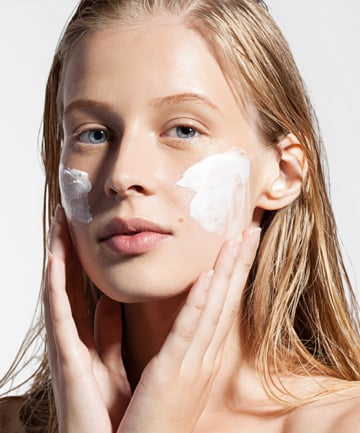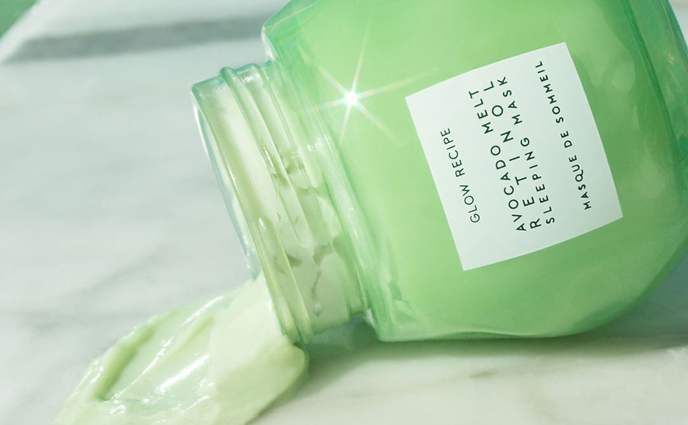Those with naturally dry skin are probably wondering whether this puts them in a more precarious position. Geneva-based dermatologist and founder of Forever Institut and Alchimie Forever Dr. Luigi L. Polla concurs that retinol is harsher on dry skin versus normal or oilier skin types. There is a silver lining because the side effects of retinol have nothing to do with the efficacy of the ingredient. Polla says, "In other words, it can be as effective on dry skin types (with more irritation) as it is on thicker, oilier skin types (with minimal irritation)."
Board-Certified Dermatologist Dr. Susan Van Dyke points out that dry skin can signal a break in the skin barrier, which would make retinol harsher on very dry, cracked skin.
Image via Imaxtree
Dry skin, oily skin, or somewhere in between: Gohara says that there are many ways to alter a retinol routine to make it just as effective as it would be on other skin types or during different seasons. (Hooray!)
Image via PeopleImages/E+/Getty
A pea-sized drop of retinol is enough for the entire face, according to Wesley. She recommends starting slooowly. Look for a lower concentration of retinol, too. Try using retinol every other night, or every third night or even once a week then gradually build up. Celebrity Esthetician Shani Darden suggests adding one additional night every week. It's not a race.
Gohara says that rest days give skin a chance to recover between each use.
Image via PonyWang/E+/Getty
Van Dyke says that skin that is well hydrated and even slightly damp may enhance the penetration of retinol and improve efficacy. Retinol newbies should ensure skin doesn't have any residue on it before applying the treatment to properly acclimate to the product. Once skin is adjusted to retinol, experiment with applying it to damp skin.
Image via deniskomarov/iStock/Getty Images Plus/Getty
Van Dyke advises that we treat skin with kindness and look for ways to enhance the skin barrier, such as with a moisturizer rich in shea butter, cocoa butter, ceramides or similar. Healthy skin tolerates retinols well.
Image via nemchinowa/iStock/Getty Images Plus/Getty









